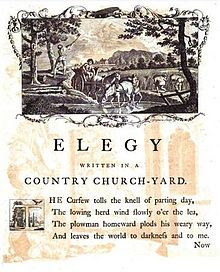GENERAL
1. Briefly summarize the plot of the novel
you read, and explain how the narrative fulfills the author's purpose (based on
your well-informed interpretation of same).
In the
novel, a black woman named Celie tells her life story consisting of: rape,
abuse, submissiveness, weakness/strength, etc. Since she was a young girl Celie
had been sexually abused by her step-father , Pa, whom she believed was her
biological father and had two kids. Later she is forced to marry a man who they
called Mr.______ (Albert) by the stepfather because he didn't want Nettie, his
youngest daughter, to marry him. He was an abusive man who while with her
cheated on her and did everything he could to make her life miserable. He would
even hide letters from Nettie after she disappeared from home and Celie ended
up thinking she was dead. One day, Mr.______'s lover Shug was very ill and
ended up staying at Celie's and Mr.______'s house until she got better. While
being there, Celie and Shug got very close to each other and ended up being
great friends. She found out how Mr.______ would constantly beat her so Shug
eventually decided to help Celie out. Because of Shug, Celie is able to finally
obtain all of Nettie's letters which after reading, she finds out Nettie is
alive and safe. Nettie had left with some missionary people, Samuel and
Corrine, to Africa. While being there, Nettie finds out that Samuel's and
Corrine's kids Adam and Olivia, are really Celie's kids who Alphonso, the
stepfather had said he had gotten rid of. Corrine ends up dying and the kids
are given back to Cellie. Alphonso dies as well. At first Celie does not want
to forgive Mr.______ but later she decides to and they begin to enjoy each
other’s company.
2. Succinctly describe the theme of the
novel. Avoid cliches.
The theme of
this novel is that strength can be hidden in the weak. Cecil had been taken
advantage of throughout her life but she became independent towards the end of
it. She dealt with the abuse of her father and husband, but Shug was the person
that Cecil needed to push her towards liberation.
3. Describe the author's tone. Include a
minimum of three excerpts that illustrate your point(s).
The tone is very serious and honest. The narrator takes a thoughtful look at her life through letters to God. She’s not joking around, but expressing the sadness of her life in the strongest way she can.
The tone is very serious and honest. The narrator takes a thoughtful look at her life through letters to God. She’s not joking around, but expressing the sadness of her life in the strongest way she can.
- When Sophia stands up for herself from
the mayor and his wife she demonstrates her own self -power that she
feels. After being asked by the mayor's wife if she will work as their maid,
Sophia answers with a s defiant "Hell No," encouraging her
overpowering ways against commands.
- In the first letter that Celie writes
she sets a serious tone, explaining about how she was raped by her
step-father. She describes everything that occurred to her, giving the
reader a more serious mood/tone.
- When Squeak tries to free Sophia from
prison and is contrarily raped by one of the warden's the tone is
both serious and overpowering. The warden overpowers defenseless Squeak
and rapes her setting seriousness to the words from Celie.
4. Describe
a minimum of ten literary elements/techniques you observed that strengthened
your understanding of the author's purpose, the text's theme and/or your sense
of the tone. For each, please include textual support to help illustrate the
point for your readers. (Please include edition and page numbers for easy
reference.)
Imagery:
"First
he put his thing up against my hip and sort of wiggle it around. Then he grab
hold my titties. Then he push his thing inside my pussy."
Diction:
"Soon
he stop. He say one night in bed, Well, us done help Nettie all we can. Now she
got to go."
Allegory:
Symbols:
Irony:
Metaphor:
Figurative
Language:
Syntax:
Theme:
Point Of
View:
CHARACTERIZATION
1. Describe
two examples of direct characterization and two examples of indirect
characterization. Why does the author use both approaches, and to what
end (i.e., what is your lasting impression of the character as a result)?
Indirect Characterization:
Sophia's
action were a great example of what a strong, determined woman she was.
2. Does the author's syntax and/or diction
change when s/he focuses on character? How? Example(s)?
The author uses
the same syntax and diction throughout the letters. Since she is writing through
letters, all that changes is how she explains her life. The text matures with
her and we get a better view of her story this way.
3. Is the protagonist static or
dynamic? Flat or round? Explain.
Celie is a dynamic
character. She changes from a scared victim to an independent strong woman. She
also switched from being a flat character to a round character.
4. After reading the book did you come away
feeling like you'd met a person or read a character? Analyze one textual
example that illustrates your reaction.
I feel like
I met a person because I was moved with how she told her story. A lot of events
took place throughout her life and she experienced plenty of hardships. She had
unhealthy relationships but in the end she overcame them. She gained independence
and broke free.







.jpg)
.jpg)


.jpg)



.jpg)












